Exploring the Power of Positive Psychology in Schools
Nov 07, 2023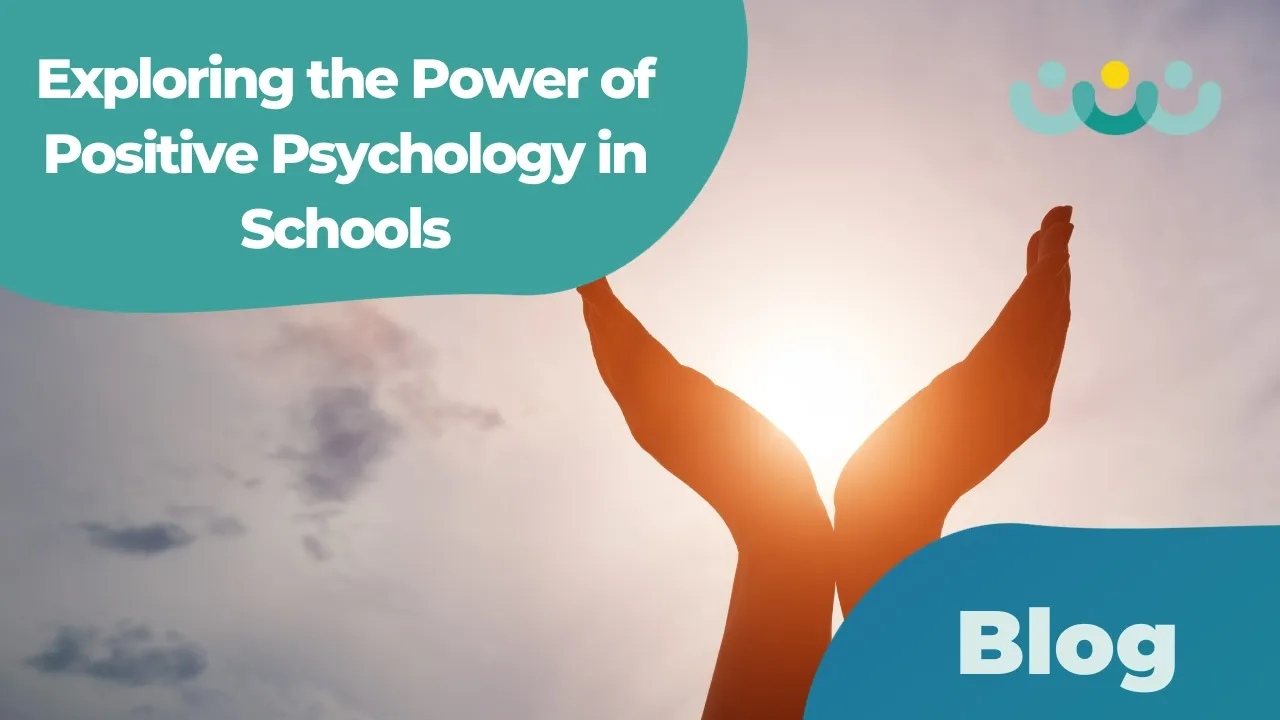
Dr Carole Campbell of South Ayrshire Psychological Service, shares the Positive Psychology Intervention for group and whole class work with children and young people, and explores the impact as an early intervention and prevention approach.
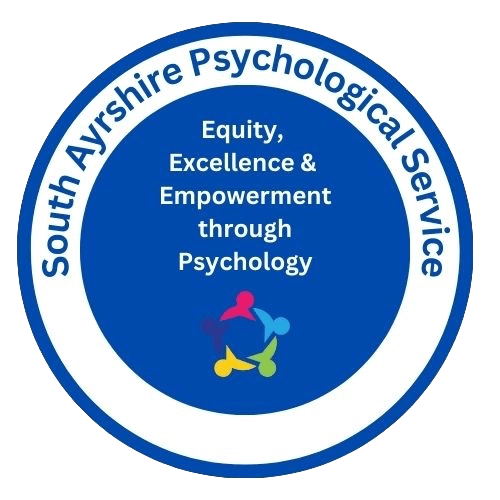
Positive Psychology
With educational psychologists often situated within the field of additional support needs, it can be easy to forget the generic offer that services can make to both high-quality teaching and learning and also to well-being. In considering early intervention and prevention approaches, positive psychology has much to offer in supporting general mental wellbeing.
Positive psychology is the study of what makes life worthwhile. It focuses on supporting people to thrive and it considers strengths and life satisfaction. Positive psychology has relevance for everyone, it is a universal approach. It also offers an alternative yet complementary approach to supporting children and young people with mental health concerns. Positive psychology has been shown to reduce anxiety, increase resilience and promote self-growth, well-being and quality of life (Pociho et al., 2022).
Positive Psychology Group & Whole Class Work
The psychological service was keen to pilot the use of positive psychology group and whole class work with children and young people. We created our own positive psychology pack, designed for use by teachers, which includes lesson planners on:
- Happiness
- Optimistic thinking
- Resilience
- Self-esteem
- Discovering my strengths
- Gratitude
- Mindfulness
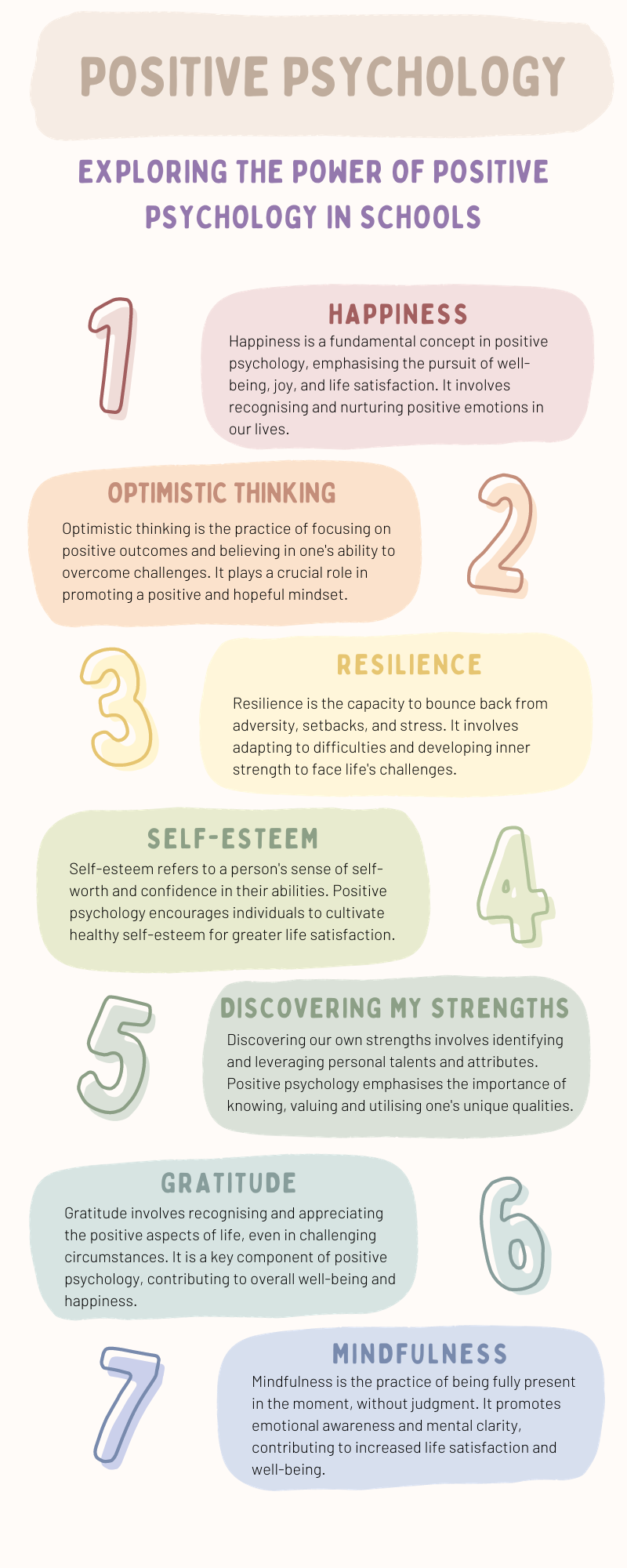
The lesson plans are based around the research in each area and recognised good practice. Each lesson starts with information on the topic area, how it links directly to the curriculum, introductory information for children and young people, learning intentions and success criteria, activities, and worksheets. Each pupil receives their own positive psychology workbook.
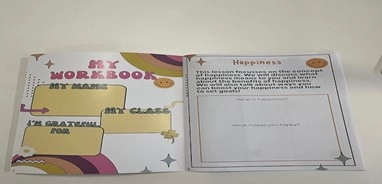
Each lesson has identified experiences and outcomes for children and young people which align with the Curriculum for Excellence, the national curriculum for Scottish learners. The lessons can be delivered from primary six (year 6 in England) to secondary third year (Yr 10 in England) pupils. Our staff modelled and coached teachers and school support staff in the approach by co-delivering the sessions with class teachers. The effectiveness of the program is measured by wellbeing and life satisfaction scales, before and after the session block. The results highlighted an increase in both areas, in most children that undertook the sessions.
Sample activities to download:
Primary to Secondary School Transitions and Positive Psychology
We know that moving school is a major life event for children (Zeedyk et al., 2003) and can involve multiple transitions in children’s lives (Jindal-Snape et al., 2021). The transition between schools often involves new social, practical, and academic demands that many pupils can find challenging (Hopwood et al., 2016). Transitioning between schools is not just about starting at a new school, but also about the wider changes in a young person’s life including those that happen at key developmental stages. The primary to secondary transition coincides with a significant period of developmental change for young people i.e., puberty. Therefore, children and young people can be simultaneously undergoing changes in their physical and emotional development. Research evidence in the past 35 years has identified that children’s achievements can slow or even decline during transitions between schools (Hopwood et al., 2016).
Within our own local authority research, undertaken by the service, indicated a reduction in attainment, wellbeing, and school connectedness of children across the primary to secondary school transition. As an early intervention and prevention approach it was decided to offer the positive psychology groupwork to all children within the local authority transitioning from primary school to secondary school. The idea was to build resources in children and young people at a key point in their lives. It was hoped that the resources would help them to manage the transition effectively.
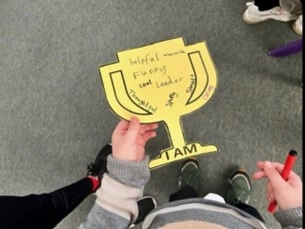
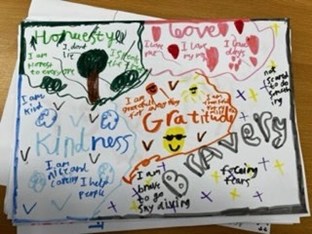
Both the outcome data and the feedback from the sessions have been exceptionally positive. Teachers and pupils indicated that they believe the program is an effective tool to build ‘transition resources’ in pupils. Further research is needed to understand if the positive changes are sustained across the transition period, with the start of secondary school beginning after a long summer holiday. This would be an area of future development. Notwithstanding that, each pupil does have their own workbook to refer to, should they wish.
Staff within the service have found the co-delivery of the program an enjoyable activity that allows them to build relationships with the children, young people, and teachers. It has been shown to impact positively on children and young people’s wellbeing and life satisfaction. At the end of the program, teachers are also confident in the delivery of the intervention going forward, allowing the service to extend the reach to larger numbers of children.
Reflective Questions
✓ What elements of positive psychology can you see already within your practice or fitting in your practice when working with children and young people?
✓ How do you envision positive psychology being applied in various parts of our practice, such as individual casework, consultation, EHCNA's, report writing, or training?
✓ How do you feel positive psychology is being or can be utilised within your service?
Positive Psychology Resources and Training Videos from RISE: Resilience in Schools and Education
We hope you find the following resources and accompanying videos from RISE useful in your practice with CYP:
Free to access Positive Psychology Resources
References
Jindal-Snape, D., Symonds, J.E., Hannah, E.F.S., & Barlow, W. (2021). Conceptualising Primary-Secondary School Transitions: A Systematic Mapping Review of Worldviews, Theories and Frameworks. Frontiers in education (Lausanne), 6. https://doi.org/10.3389/feduc.2021.540027
Hopwood, B., Hay, I., & Dyment, J. (2016). The transition from primary to secondary school: Teachers' perspectives. Aust. Educ. Res, 43(3), 289-307. https://doi.org/10.1007/s13384-016-0200-0
Pocinho M, Garcês S and Popa D (2022) Editorial: Positive Psychology in Everyday Life. Front. Psychol. 13:913569. doi: 10.3389/fpsyg.2022.913569
Zeedyk, M. S., Gallacher, J., Henderson, M., Hope, G., Husband, B., & Lindsay, K. (2003). Negotiating the Transition from Primary to Secondary School: Perceptions of Pupils, Parents and Teachers. School psychology international, 24(1), 67-79. https://doi.org/10.1177/0143034303024001010
Stay connected with news and updates!
Sign up to receive updates, resources, inspiring blogs and early access to our courses.
Don't worry, your information will not be shared.



